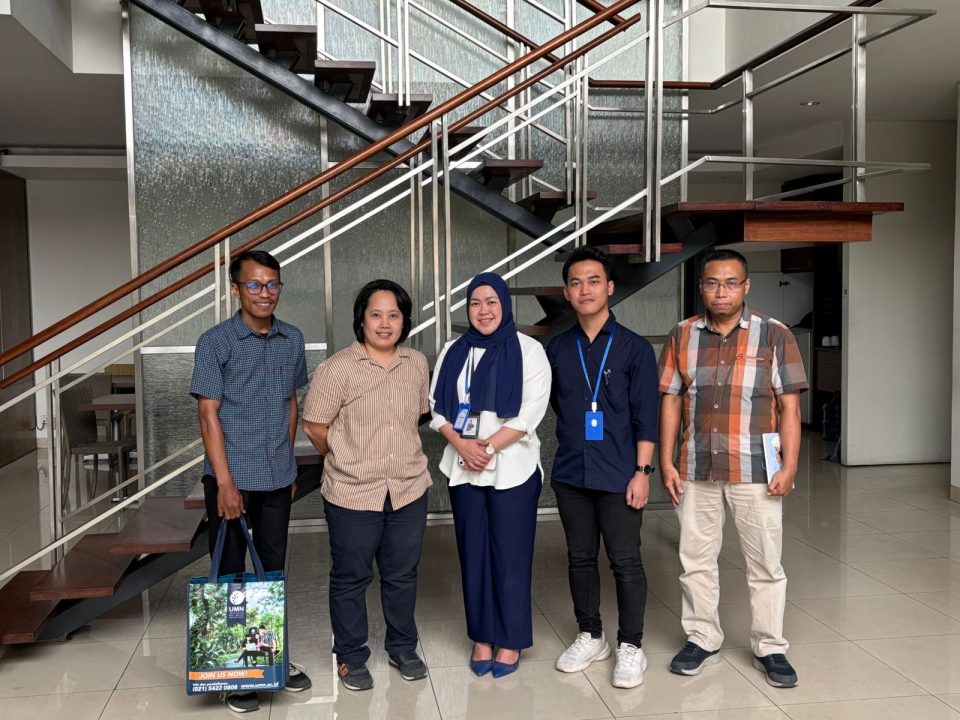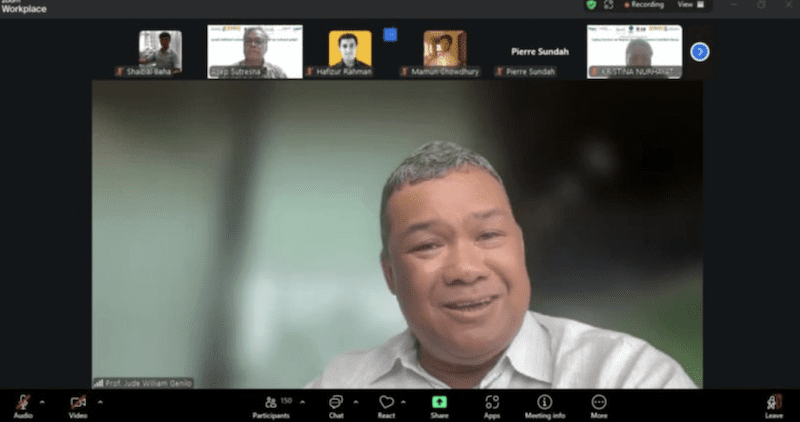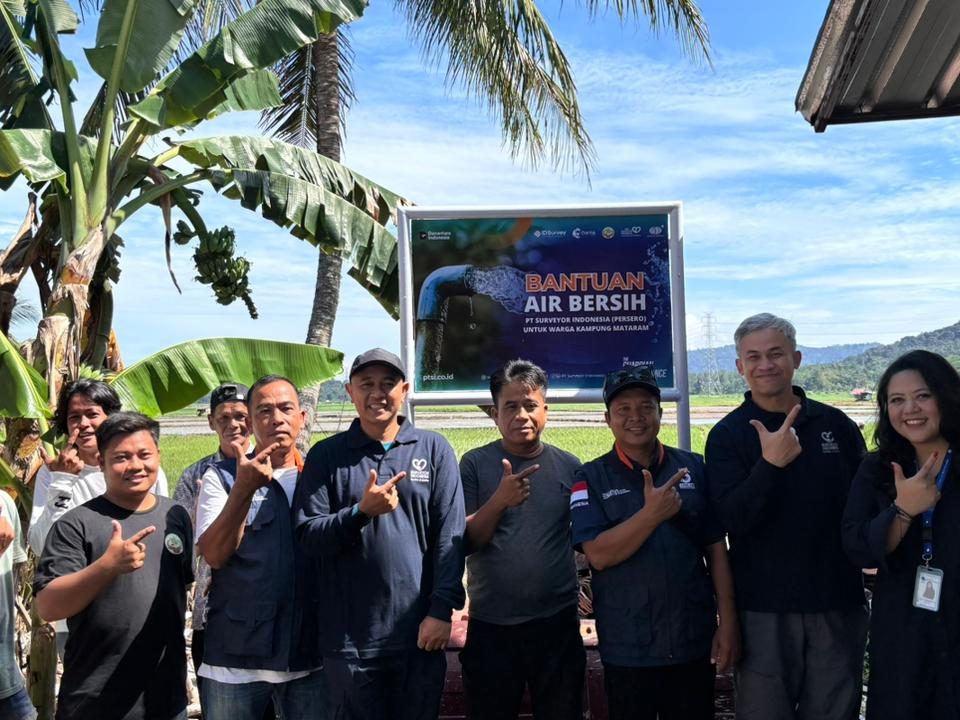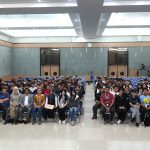
UMN Engineering and Informatics Faculty Guest Lecture Highlights the Role of Research and Innovation in Digital Transformation
September 30, 2025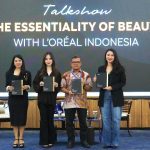
UMN Communications Faculty Conducts Beauty Talkshow with L’Oréal Indonesia
September 30, 2025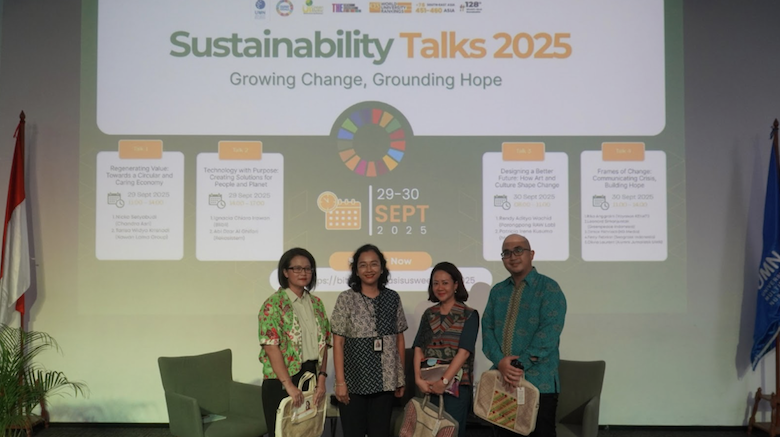
Group photo and award presentation to speakers and the moderator. (Doc. UMN)
Tangerang – On Monday (09/29/2025), the UMN Sustainability Center held a Sustainability Talk, a series of activities from Sustainability Week in collaboration with the UMN Faculty of Business. This Sustainability Talk with the Faculty of Business invited two speakers, Nicko Setyabudi, Circular Economy and Partnership; Chandra Asri and Tarisa Widya Krisnadi, Commissioner of Kawan Lama Group; moderated by Dr. Amanda Setiorini, Lecturer of the Management Study Program. This Sustainability Talk raised the topic of “Regenerating Value: Towards a Circular and Caring Economy”.
Economic changes present challenges and opportunities for the industry. The industry is required to be creative and innovative and to become a driver of a sustainable economy. This Sustainability Talk with the Faculty of Business will explore how the industry contributes to a circular and sustainable economy.
“Chandra Asri Group is a chemical, energy, and infrastructure company. In this company, we utilize existing energy sources and strive to become an independent industry in the future, reducing dependence on imported goods and maximizing the use of domestically available resources. This commitment extends not only to production but also to conducting sustainable business,” Nicko Setyabudi, Circular Economy and Partnership at Chandra Asri, said, during the Sustainability Talk.
Nicko emphasized that collaboration with the government, the community, and the surrounding environment is key to a sustainable industry. Without collaboration, the industry cannot progress. Nicko also explained Chandra Asri’s commitment to Environment, Social, and Governance (ESG).
“We are increasing job opportunities for the community, providing facilities that support the community, providing assistance in accessing education for the community, and encouraging a circular economy in its management,” Nicko added.
Nicko also explained how waste can be managed properly and become a resource that drives the economy. Waste materials have value, and the industry must manage them smartly. This trend is echoed in developed countries and well-known brands such as IKEA and Nike.
“In the circular business process, the most important things are recollection, reprocessing, and remarketing are the most important things. Indonesia has the opportunity to pursue a good circular economy. However, collaboration with various parties is certainly needed so that this waste can become an opportunity and build proper waste management,” Nicko explained.
The second speaker, Tarisa Widya Krisnadi, Commissioner of Kawan Lama Group, also discussed how sustainability and the circular economy work. Tarisa explained that Kawan Lama Group established the Kawan Lama Group Foundation in 2010, which aims to have a positive and sustainable impact in Indonesia.
“We prioritize health, social issues, education, the environment, and arts and culture. Over time, these five areas have become interrelated through Kawan Lama Group’s sustainability activities. Of course, Kawan Lama does not work alone, but we often collaborate with various parties,” Tarisa explained.
Tarisa also outlined various programs carried out by Kawan Lama Group, such as Aram Bekelala Tenun Iban, a program to empower female weavers from Daya Iban that focuses on cultural preservation, empowerment of weavers, and education on the use of natural dyes.
“Our Merajut Asa Sumba program is also a collaboration with UMN, and this program not only supports culture but also supports a sustainable circular tourism economy. All of our programs are linear and support the five pillars of Kawan Lama Group,” Tarisa continued.
Tarisa also told students not to fear change, as students are agents of change. Sustainability can start with small things; there is no need to wait for big things to begin something new and sustainable.
“We must protect the earth, protect In,donesia for future generations because we are part of the global society,” Tarisa concluded.
By Rachel Tiffany | UMN News Service
English translation by Levina Chrestella Theodora
Kuliah di Jakarta untuk jurusan program studi Informatika| Sistem Informasi | Teknik Komputer | Teknik Elektro | Teknik Fisika | Akuntansi | Manajemen| Komunikasi Strategis | Jurnalistik | Desain Komunikasi Visual | Film dan Animasi | Arsitektur | D3 Perhotelan , di Universitas Multimedia Nusantara.

